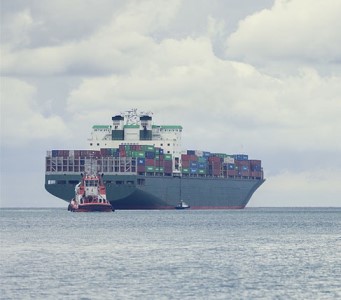Sustainable marine engineering
While shipping remains one of the most efficient forms of regional and global transport in terms of energy per tonne-mile of cargo, there is still a need to reduce and mitigate the impact on the environment caused by ship movements to keep shipping at the forefront of sustainable transport.
Currently the shipping industry is highly reliant on the use of slow or medium-speed diesel engines running on carbon-based fossil fuels. These are, principally, heavy fuel oil, a low-quality residual from the oil refining process, and diesel oil and both contain significant amounts of sulphur.
As a consequence, ships’ engines make a significant contribution to airborne pollution from SOx, NOx, soot and particulate matter. Furthermore, the CO2 production from all shipping is currently estimated to be approximately 3% of the global total.
This is equivalent to the totals for some individual European nations. With the predicted increase in shipping demand for the future, this is set to rise significantly if shipping continues to operate with a “business as usual” attitude.
In addition, ships interact with the marine ecosystem. For example, their hulls are settled by marine organisms which increases hull drag, with consequential increase in fuel use, and act as a vehicle for the relocation of invasive species, as does the transportation of ballast water.
Clearly, the shipping system and its interaction with the environment is complex.
The Sustainable Shipping and Marine Engineering Research Group uniquely brings together a wide diversity of experts, including marine scientists, marine engineers and maritime business and logistics experts, who are collaborating to tackle the challenge of transition to a low carbon, low environmental impact future.
Research questions
Airborne emissions from shipping: how do we reduce the production and effect of airborne pollution from shipping activity?
Sustainable shipping and logistics: what is the role of the shipping supply chain in reducing the carbon footprint of shipping?
Indices and policy: how do we create and influence policy and regulation towards environmentally friendly shipping and supply chains?
Bio-fouling and anti-fouling: how do we reduce the huge economic impact and the threat to biodiversity caused by bio-fouling on marine vehicles and structures without polluting the oceans?
